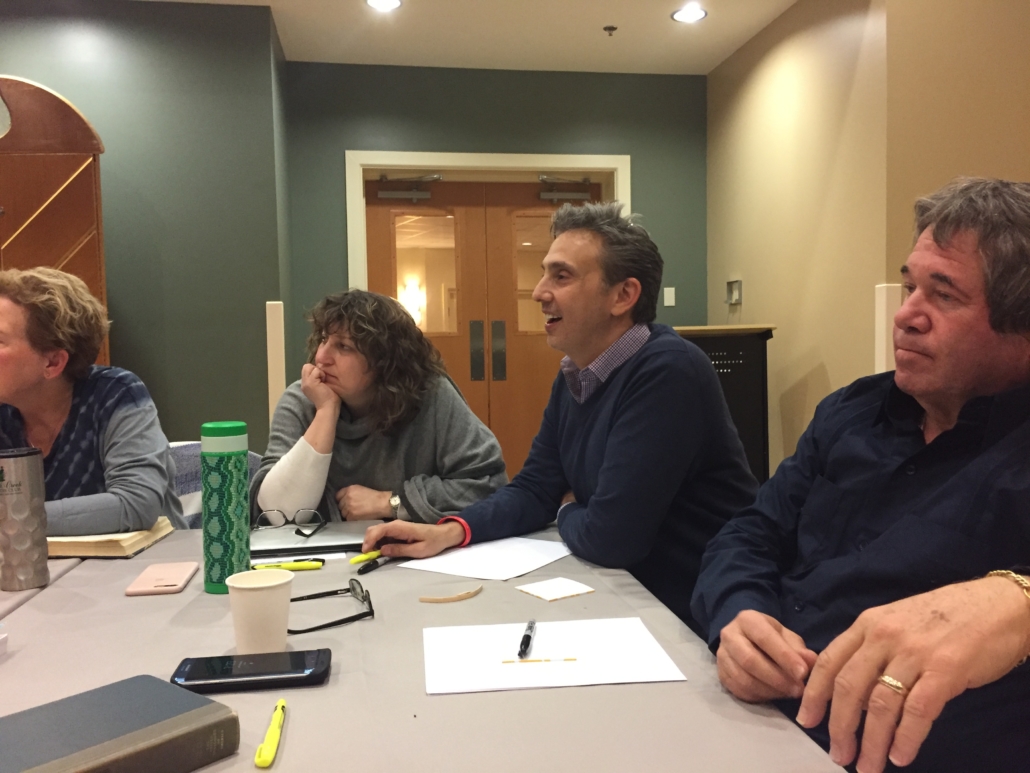
In-person learning at a Bayit clergy retreat… in pre-covid times.
About Bayit Online Learning
Bayit’s online classes share tools for building meaningful Jewish lives. Some of our offerings are designed to help clergy build their spiritual toolkits, while others are intended for a broader audience. We welcome learners of every level of experience, at all ages and stages of life. Our classes take place over Zoom and are accessible to anyone with an internet connection.
Upcoming Offerings
- Black and Jewish Community-Building: A Class for Black Christians and Jews of all races, co-taught by Rabbi Alana Suskin and the Minister Cornell Jenkins. This is an update of our previous class “God Who Forms Their Hearts as One.” These six sessions will help you acknowledge how both Black and Jewish communities have been shaped by white supremacy and help us move beyond platitudes to collaboration. By participating in this class, individuals will begin to form a solid foundation for partnership, true understanding, and allyship. $199. Dates TBD; use our contact form (above) if interested.
Previous Offerings
- God Who Forms Their Hearts As One, co-taught by Rabbi Alana Suskin and the Minister Cornell Jenkins. This six part series invites us to engage in a process of self-reflection, historical understanding, and dialogue to investigate the role of race among Jews and Blacks in America, and to help us move beyond platitudes to reconciliation. Each 90-minute session uses pedagogical techniques to explore biases and utilizes Jewish and Christian texts to build a common understanding and create a path forward. Each session also introduces tools for participants to bring these lessons back to their own communities.
- Entering the Psalms – For Clergy, taught by Rabbi Rachel Barenblat. Open to clergy of all faiths. “The psalms give voice to a range of human emotions, from despair to exultation. In this class for clergy, we’ll study psalms (both classical / Biblical, and contemporary poems that function in similar ways) and then open our creative channels to write our own. Both the reading and the writing will enliven our relationship with text, tradition, ourselves, and our Source, and will give us tools for building a more robust relationship with the psalms and with our own creativity.”
